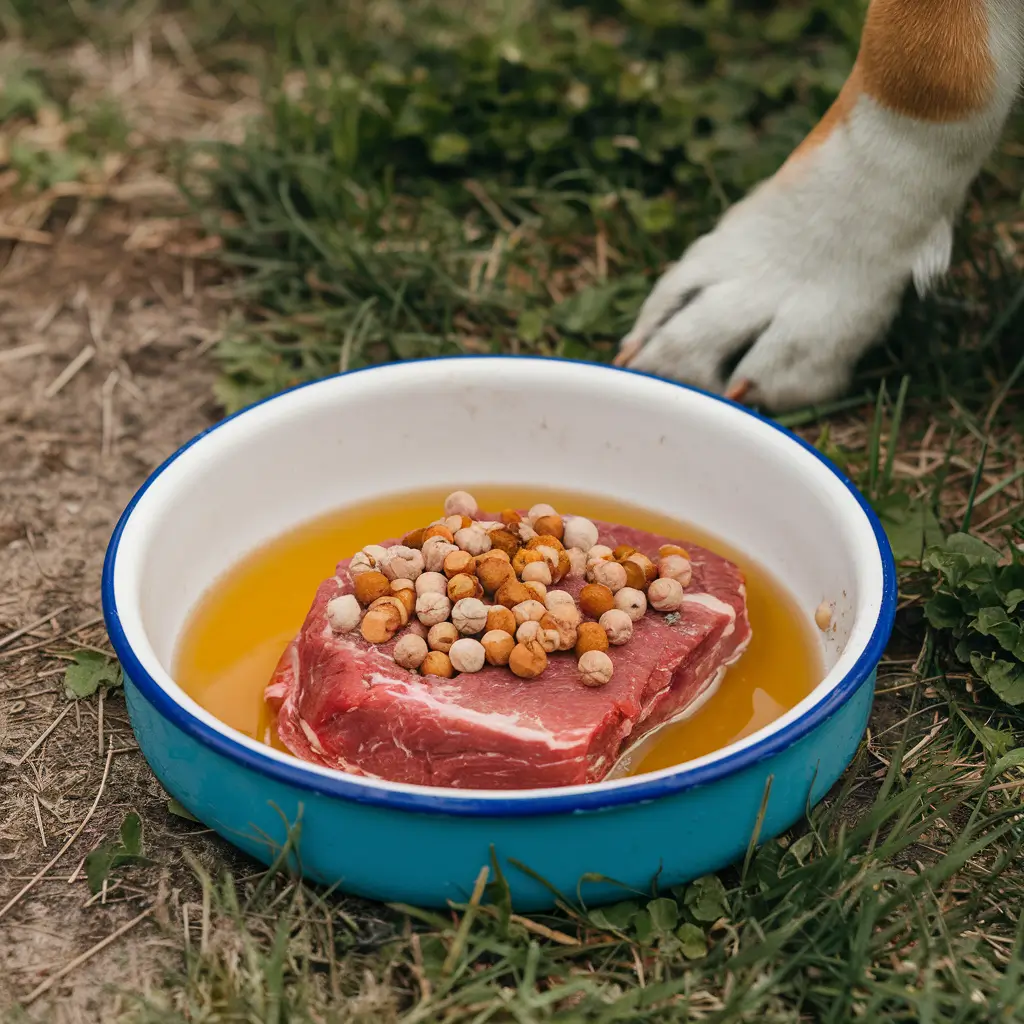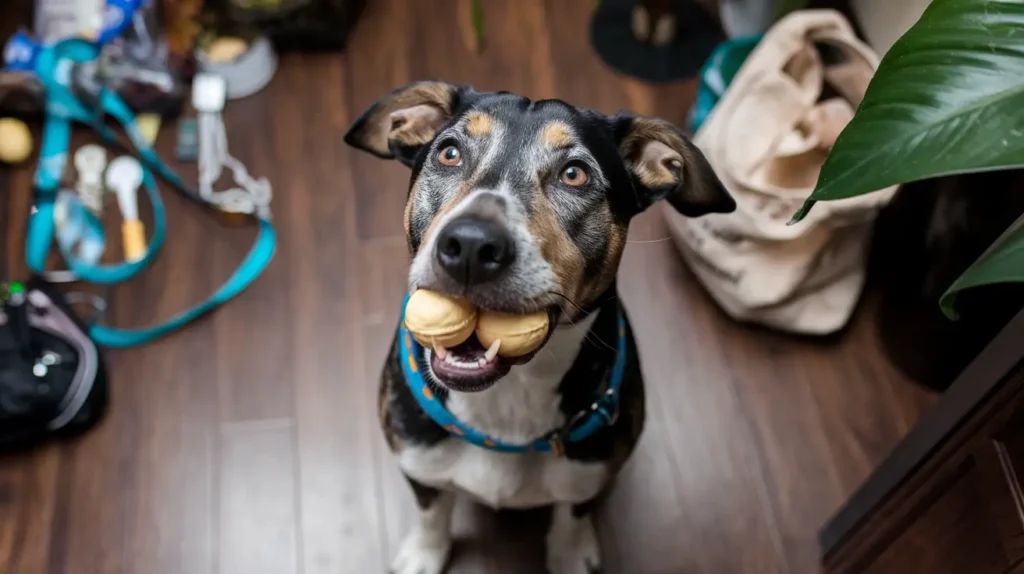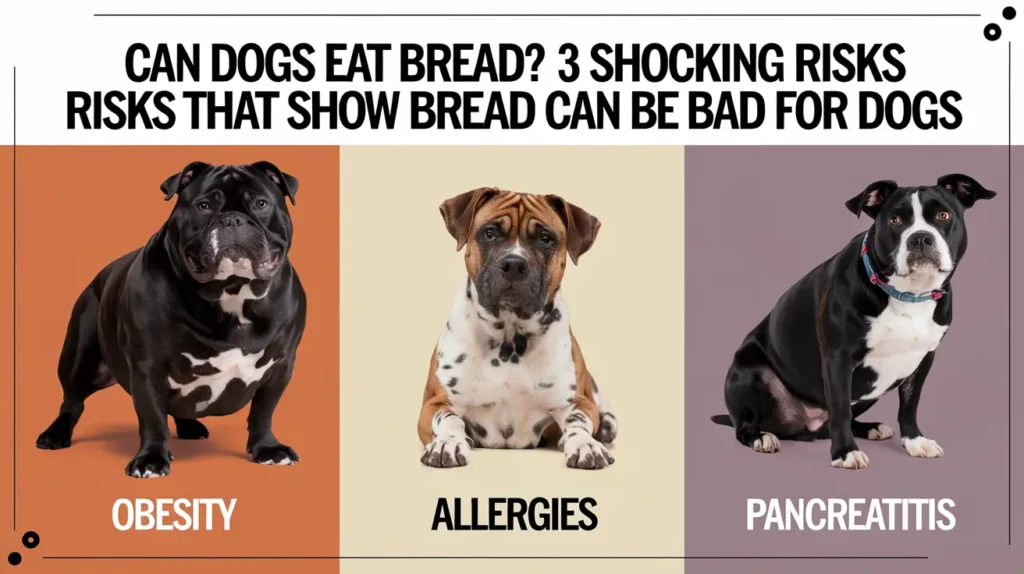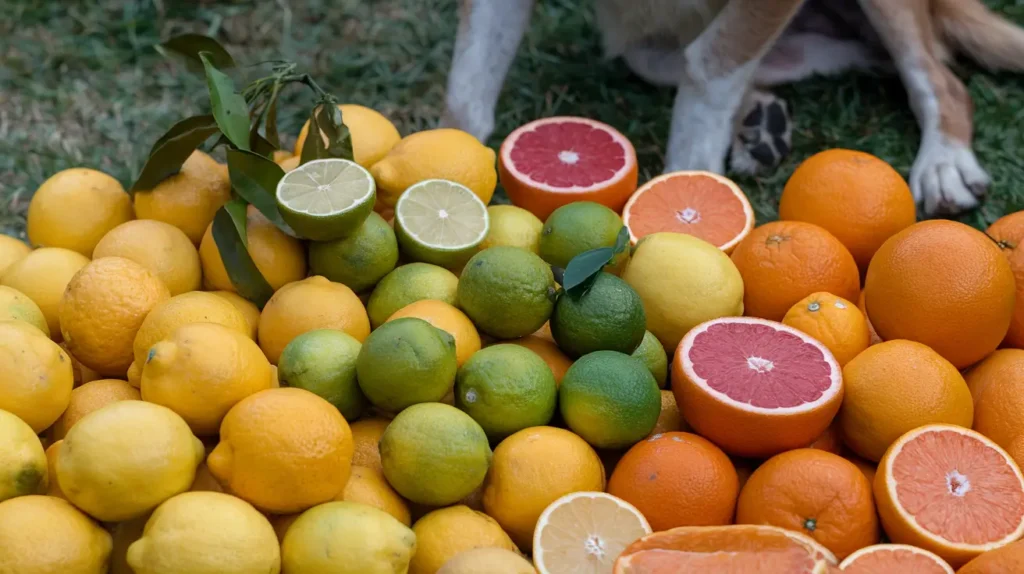Why Does My Dog Eat His Own Poop?
If you’ve caught your dog munching on something they shouldn’t—especially poop—you’re not alone. This behavior, known as coprophagia, is fairly common in dogs, even though it’s something no owner wants to witness. But don’t worry, there are ways to stop it! In this article, we’ll explore why does my dog eat his own poop and dive into some effective home remedies and training techniques to help you break this icky habit.
Table of Contents
Understanding Why Dogs Eat Poop?
Dogs eat poop for various reasons, and understanding the cause is the first step toward stopping it.

Common Reasons Behind Coprophagia !

Is It a Health Problem?
For most dogs, coprophagia is a behavioral issue, but in some cases, it could be linked to health problems, such as poor digestion or parasites. That’s why it’s important to rule out any medical concerns first.
Health Risks of Poop Eating
While it’s a gross habit, poop eating can also pose some serious health risks.
- Possible Health Issues from Coprophagia
Eating poop can expose your dog to parasites, bacteria, and infections. If your dog eats another animal’s feces, they may pick up worms, Giardia, or other harmful pathogens. This could lead to digestive upset, vomiting, or more severe health issues.
Medical Research Why Does My Dog Eat His Own Poop?
Medical studies indicate that coprophagia, or stool-eating, in dogs may have roots in both dietary and behavioral factors. Research has linked the behavior to potential nutritional deficiencies, digestive enzyme insufficiency, or gastrointestinal imbalances.
For instance, some veterinarians suggest that dogs with digestive enzyme deficiencies may turn to poop-eating as an attempt to recover missing nutrients. Additionally, behavioral factors, such as anxiety, stress, boredom, and even attention-seeking behavior, are associated with coprophagia.
Studies have also examined possible evolutionary factors, suggesting that some dogs may engage in coprophagia as a way to keep their environment clean or to avoid detection from potential predators.

Statistics Why Does My Dog Eat His Own Poop?
Surveys on coprophagia provide insight into how common this behavior is in dogs.
A 2018 study found that approximately 16% of all dogs exhibit coprophagia regularly, with as many as 24% engaging in the behavior occasionally. This behavior is more prevalent among younger dogs, though it’s seen in dogs of all ages and breeds.
Additionally, dogs in multi-dog households are more likely to eat poop compared to single-dog households, as the study suggested a higher incidence rate of 33% in such environments.
The statistics indicate that coprophagia is a widespread issue, though not all dogs engage in it persistently, suggesting that environmental and individual factors play a role.
Training Techniques to Prevent Poop Eating!
You can train your dog to stop eating poop using positive reinforcement and consistent commands.
- Positive Reinforcement
Reward your dog with treats and praise when they obey a command to leave the poop alone. Use simple phrases like “Leave it” or “No” to teach them not to engage with feces.
- Using Distractions
If you notice your dog heading towards poop, distract them with a toy or a fun game to take their mind off it.

Dietary Changes to Stop Coprophagia
Sometimes, changing what your dog eats can make all the difference.
A diet low in fiber could make your dog more prone to coprophagia. Try adding fiber-rich foods like carrots, green beans, or fiber supplements to their meals.

Poor digestion could be one reason why dogs eat poop. Probiotics can help improve their gut health and reduce this behavior over time.
A diet low in fiber could make your dog more prone to coprophagia. Try adding fiber-rich foods like carrots, green beans, or fiber supplements to their meals.
Home Remedies to Discourage Dogs From Poop Eating
Home remedies can be a useful and natural way to address the issue of coprophagia in dogs. Here’s a detailed explanation of how certain remedies may work and additional options you can try:


- Pineapple: Pineapple contains enzymes (like bromelain) that may alter the smell and taste of a dog's poop, making it less appetizing. When dogs eat pineapple, the digestive process changes the feces' composition, often making it unappealing. You can give your dog small chunks of fresh pineapple or mix a spoonful of canned pineapple (unsweetened) into their meals.
- Pumpkin: Similarly, pumpkin is high in fiber and water, which can improve digestion and make stool less attractive to dogs. The fiber in pumpkin helps regulate your dog’s digestive system and can result in a firmer stool, which is less likely to be eaten. You can mix plain canned pumpkin (not pumpkin pie filling) into your dog’s food, about 1-2 teaspoons for small dogs and 1-2 tablespoons for larger dogs.

-
- Vinegar: Adding a small amount of apple cider vinegar or white vinegar (usually 1 teaspoon per 25 pounds of body weight) to your dog’s food can deter poop eating. The acidic taste of vinegar can make the poop unappealing and also aid in digestion, potentially balancing the pH levels in the stomach. Be cautious not to overuse vinegar, as too much acidity can cause stomach upset.
- Meat Tenderizers: Meat tenderizers contain enzymes like papain that help break down proteins. When sprinkled on your dog’s food, these enzymes pass through the digestive system and make the feces taste bitter or unpleasant to dogs. A small pinch of meat tenderizer (make sure it’s unseasoned and free of harmful additives like MSG) can be mixed with their meals.

-
Aloe vera is known for its soothing digestive properties, but it also acts as a natural deterrent for poop eating. Small amounts of aloe vera juice (about 1 teaspoon for a medium-sized dog) can help improve digestion and reduce coprophagia. However, too much aloe vera can have laxative effects, so be sure to use it sparingly and consult with your vet beforehand.

-
-
Some pet owners use small amounts of garlic powder to deter poop eating. Garlic is believed to make feces less appealing due to its strong taste. However, garlic can be toxic to dogs in large quantities, so this remedy should only be used under veterinary guidance. If allowed, use just a pinch in their meals once a day.
-

-
Adding a small spoonful of plain, unsweetened yogurt to your dog’s food can improve gut health. Probiotics found in yogurt support digestion by balancing the gut bacteria, which can reduce the occurrence of coprophagia. Alternatively, you can add probiotic supplements designed specifically for dogs to their diet, which helps with overall digestion and prevents undesirable behaviors.

-
-
Spinach contains high levels of fiber and essential vitamins that promote digestive health. You can steam spinach and add small amounts (a few leaves, chopped finely) to your dog’s food. Spinach is known to produce a distinct smell and taste in stool that some dogs find unappealing, thereby acting as a deterrent.
-

-
Coconut oil is a natural digestive aid that can help reduce the incidence of coprophagia. It contains medium-chain fatty acids that help with digestion and improve overall gut health. Adding about 1 teaspoon (for small dogs) to 1 tablespoon (for large dogs) of coconut oil to their food can make their stool less appetizing while providing other health benefits like a shiny coat and improved skin.

-
-
Zucchini is another fibrous vegetable that can deter poop eating. Adding small amounts of steamed or grated zucchini to your dog’s food can help firm up stools and make them less attractive. Like pumpkin, zucchini is rich in fiber and can improve digestion.
-

-
Sometimes, dogs eat poop because their diet is lacking in nutrients. Ensuring your dog has a well-balanced, high-quality diet with the right amount of proteins, fats, vitamins, and minerals may reduce the chances of coprophagia. Talk to your vet about your dog’s dietary needs and whether they could benefit from a different type of food.

-
-
Some dogs eat poop because they aren’t fully digesting their food. Adding digestive enzymes (available as supplements) to their meals can help break down food more efficiently, ensuring your dog gets the nutrients they need, which may prevent them from seeking out other sources like feces.
-
Exercise And Mental Stimulation That Helps Dogs to Stop Eating Poop!
Exercise and mental stimulation are key factors in addressing undesirable behaviors in dogs, including coprophagia (the habit of eating feces). Let’s break it down further:
Dogs need regular physical activity to maintain good health and prevent behavioral issues. Lack of exercise can lead to boredom, frustration, and pent-up energy, which might manifest in destructive or unusual behaviors like chewing on furniture or eating poop.
By increasing your dog’s exercise routine, whether through daily walks, runs, or playing fetch, you help them release energy, making them calmer and less likely to develop negative habits.
When a dog is tired from physical activity, they are less likely to engage in undesirable actions. Exercise satisfies a dog’s natural instinct to be active, which can prevent them from turning to behaviors like poop eating out of boredom or frustration. For instance, when dogs get enough exercise, they’re more focused, content, and likely to rest, which minimizes the chances of misbehaving.
Mental stimulation is just as important as physical exercise. A dog’s brain needs to be engaged to keep them happy and well-behaved. Boredom is a common cause of behavioral issues, and activities that challenge your dog’s mind can be effective in preventing them.
Puzzle toys, treat-dispensing games, or even basic training sessions can stimulate your dog’s brain, keeping them occupied and less interested in undesirable behaviors like coprophagia. Introducing mental challenges allows dogs to focus on solving a task, which satisfies their need for stimulation and can prevent them from engaging in bad habits.

Incorporating both physical and mental exercise into your dog’s daily routine is a proactive way to curb problematic behaviors, ensuring they remain happy and well-behaved.
Cleaning Up After Your Dog
A simple yet effective solution to coprophagia is to remove the temptation.
Importance of Immediate Cleanup
Pick up your dog’s poop right away, so they don’t have a chance to snack on it. Make a habit of checking your yard or the area you walk to ensure it’s poop-free.
The Role of Supervision
Supervising your dog can help you catch them before they engage in this behavior.
Why Supervision is Key?
Whenever your dog is outside, keep a close eye on them. Supervision gives you the chance to correct the behavior immediately.

Other Medical Treatments for Coprophagia
In some cases, your vet might suggest prescription medications or enzyme supplements that can deter your dog from eating poop.
Conclusion: Why Does My Dog Eat His Own Poop?
Dealing with coprophagia can be challenging, but with a structured approach, it’s possible to address this behavior. Dogs may eat their own poop for various reasons, from nutritional deficiencies to behavioral habits. By using consistent training, exploring dietary adjustments, and trying anti-coprophagia products, you can effectively deter this habit. If the behavior persists or if you’re unsure of the cause, consult your veterinarian for guidance. With patience and a steady routine, you can help your dog leave this habit behind for good.
FAQs
Sudden coprophagia may be due to boredom, stress, or changes in diet. Make sure they’re getting enough mental stimulation and a balanced diet.
Yes, it can expose your dog to parasites and harmful bacteria, which could lead to health issues.
It varies, but with consistent training and the right approach, you should see improvement in a few weeks to a couple of months.
Yes, it could be linked to malnutrition, digestive issues, or even parasites. If you're concerned, it's best to have your vet check for any underlying health problems.
If home remedies fail, consult your veterinarian. They might recommend a specific treatment plan, dietary changes, or even prescribe medications to help curb the behavior.
To clean your dog’s mouth after they’ve eaten poop, follow these steps:
- Brush their teeth using a dog-safe toothbrush and toothpaste.
- Rinse with dog-safe mouthwash or water, if brushing isn't possible.
- Offer them fresh water to drink.
- Give them chew toys or dental treats designed to clean teeth and freshen breath.
Latest News
A small river named Duden flows by their place and supplies it with the necessary regelialia. It is a paradise
Can Dogs Eat Doritos? 4 Powerful Points That Shows Doritos Are Unsafe for Dogs
As pet owners, we often find ourselves tempted to share our snacks with our furry companions. One common question that arises is, “Can dogs eat Doritos?” No, dogs should not eat Doritos. While a small amount is unlikely to cause immediate harm, the ingredients in Doritos, such as high salt content, artificial flavors, and spices,…
Can Dogs Eat Macadamia Nuts? 7 Solid Symptoms of Macadamia Nut Poisoning in Dogs
When it comes to feeding our dogs, we often look to share some of our favorite snacks with them. However, not everything that is safe for humans is equally harmless to dogs. The common question is that Can Dogs Eat Macadamia Nuts? the short answer is no, dogs should not eat macadamia nuts. These nuts…
Can Dogs Eat Sunflower Seeds? 6 Solid Reasons Dogs Eat Sunflower Kernels
When it comes to our furry companions, it’s natural to question the safety and benefits of the foods they consume. Sunflower seeds are a popular snack among humans, but Can dogs eat Sunflower seeds? Are Sunflower seed safe for dogs? Yes, dogs can eat sunflower seeds and sunflower seeds are safe in moderation, provided certain…
Can Puppies Eat Bread? 3 Surprising Benefits Explained
Can Puppies Eat Bread? This is a question many pet owners ask when considering sharing their food with their furry friends. While bread is a common food in human diets, it’s essential to know whether it’s safe and beneficial for puppies. Understanding the potential risks and benefits will help you make the best decision for…
Can Dogs Eat Bread? 3 Shocking Risks That Show Bread Can Be Bad for Dogs
Can dogs eat bread? Is bread bad for dogs? These are common questions among pet owners. Bread is a staple in many households, and while dogs can eat bread, it should only be given in moderation and under certain conditions. Plain white or whole wheat bread is generally safe for dogs to consume, but it…
What Citrus Is Toxic to Dogs? Top 4 Types That Are Toxic
Dogs are curious creatures, often eager to explore their surroundings, including the food we eat. While many fruits are safe for dogs in moderation, the question arises: What citrus is toxic to dogs? The answer lies in citrus fruits such as lemons, limes, and grapefruits, which contain compounds that can be harmful to your canine…






